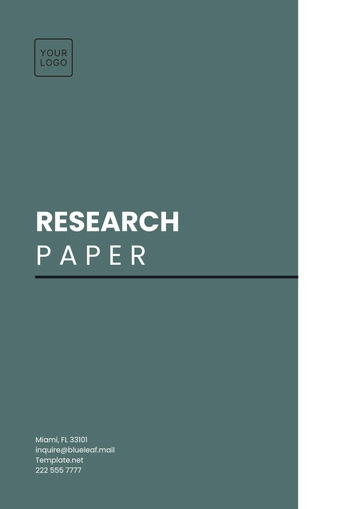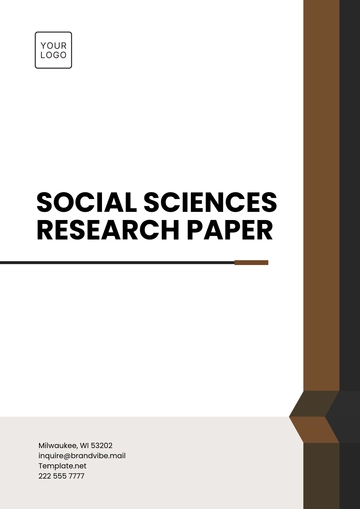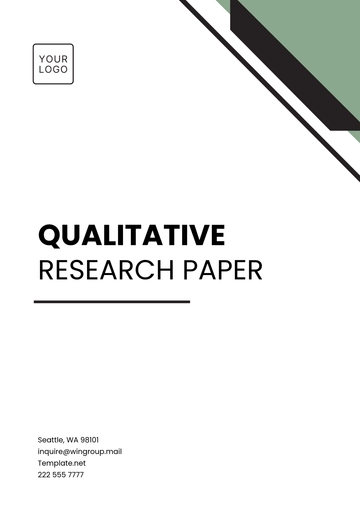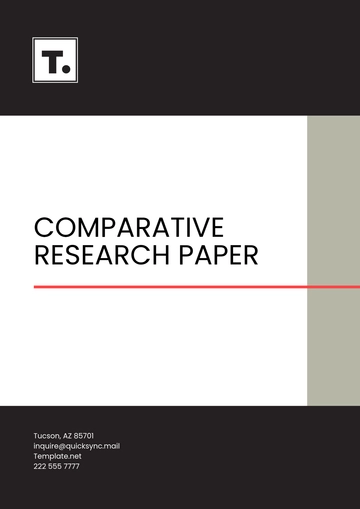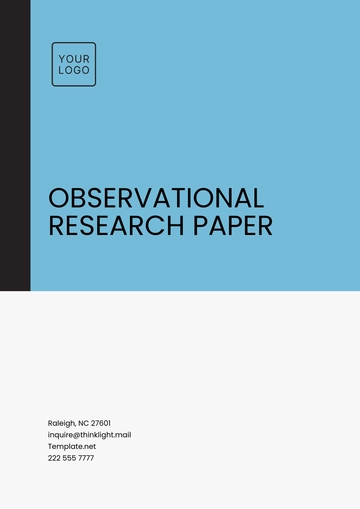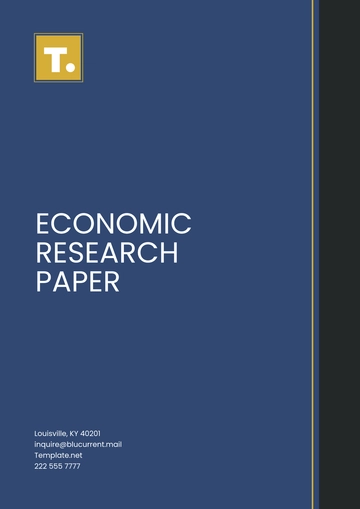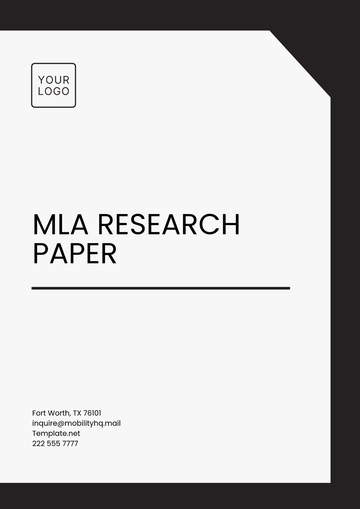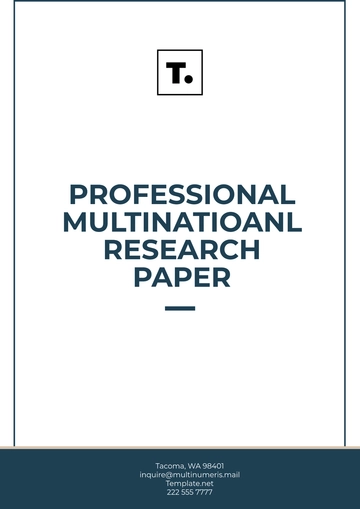Free Empirical Research Journal Article
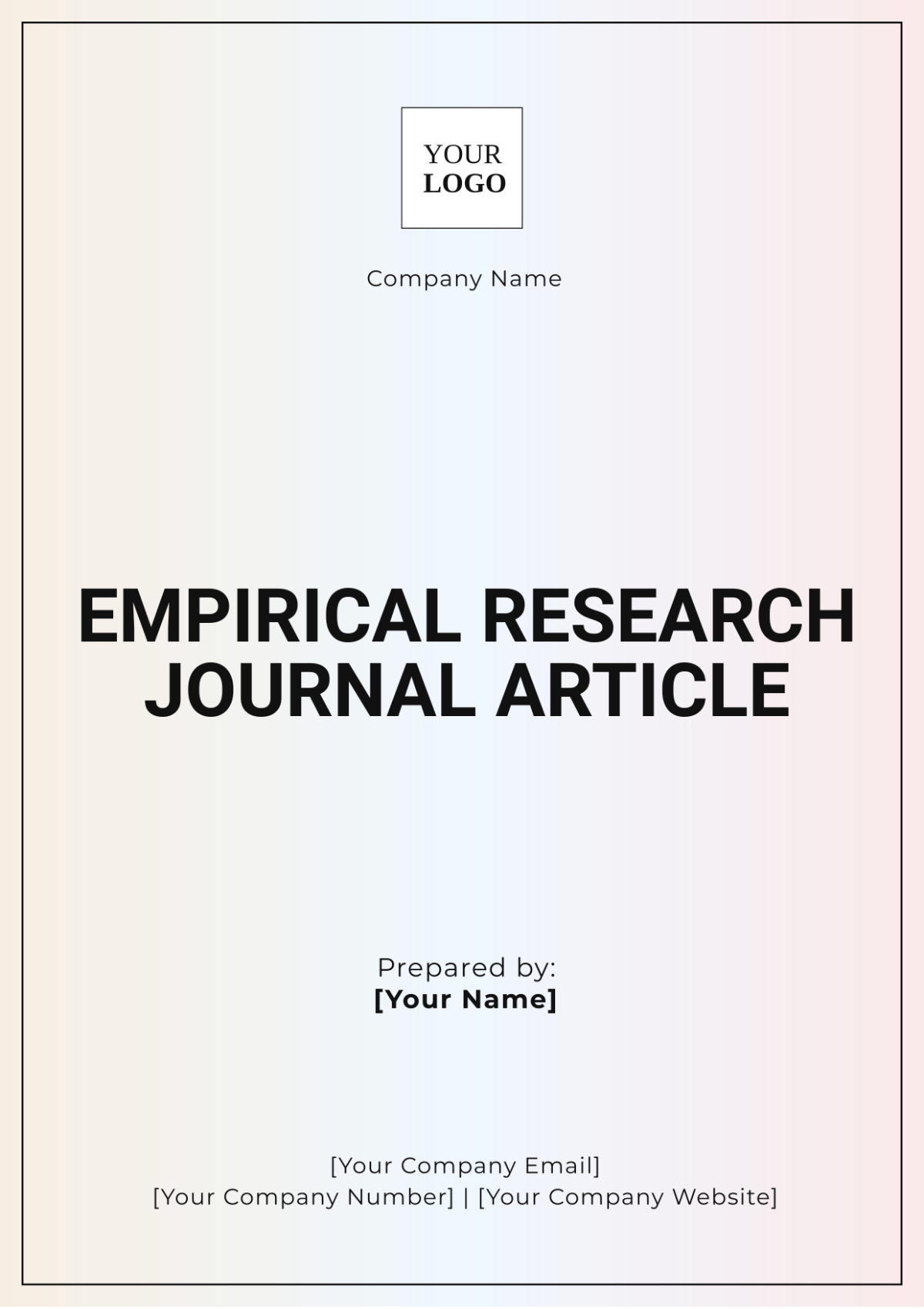
Title: An Empirical Research Journal Article: Effects of Remote Work on Employee Productivity
Prepared by: [Your Name]
Date: [Date]
I. Abstract
This study investigates the impact of remote work on employee productivity by analyzing data collected through surveys administered to 500 employees across various industries. The findings indicate that remote work can lead to increased productivity under certain conditions, such as the availability of proper technological tools and a conducive home environment. However, some challenges such as lack of face-to-face interaction and work-life balance issues were also highlighted. These results contribute to the ongoing debate on the efficacy of remote working arrangements and provide actionable insights for employers.
II. Introduction
The COVID-19 pandemic forced many companies to adopt remote work models, offering a unique opportunity to analyze their effects on employee productivity. While some studies suggest that remote work enhances productivity due to flexible schedules and reduced commuting time (Bloom et al., 2050), others posit that it may adversely affect productivity due to distractions and lack of direct supervision (Wang et al., 2055). This paper aims to provide empirical evidence on the subject by analyzing survey data from employees working remotely during the pandemic.
III. Methodology
The research design involved a quantitative survey distributed via email to 500 employees from diverse industries who transitioned to remote work during the COVID-19 pandemic. The survey included questions related to productivity levels before and after the shift, perceived benefits and challenges of remote work, and demographic information. Data were analyzed using statistical methods such as descriptive statistics, t-tests, and regression analysis to identify significant patterns and correlations.
IV. Results
A. Productivity Changes
Survey Results | Percentage (%) |
|---|---|
Significant increase in productivity | 60% |
No change in productivity | 25% |
Decline in productivity | 15% |
B. Key Factors Contributing to Increased Productivity
Survey Results | Percentage (%) |
|---|---|
Flexible schedule | 78% |
Reduced commuting time | 63% |
Comfortable home office setup | 55% |
C. Main Challenges
Survey Results | Percentage (%) |
|---|---|
Distractions at home | 45% |
Lack of social interaction | 40% |
Difficulty in separating work from personal life | 38% |
V. Discussion
The findings suggest that remote work can enhance productivity, particularly when employees have adequate resources and a conducive work environment. However, companies must address challenges such as maintaining team cohesion and ensuring a clear separation between work and personal life. Strategies like regular virtual meetings, mental health support, and flexible working hours could mitigate some of these issues. Future research could explore the long-term effects of remote work and its impact on different job roles and industries.
VI. Conclusion
This study provides empirical evidence that remote work can enhance employee productivity under certain conditions. While the shift to remote work presents both opportunities and challenges, thoughtful implementation of support systems and policies can maximize its benefits. Employers should consider personalized approaches to accommodate the diverse needs of their workforce and ensure sustained productivity in remote work settings.
VII. References
Bloom, N., Liang, J., Roberts, J., & Ying, Z. J. (2050). Does working from home work? Evidence from a Chinese experiment. Quarterly Journal of Economics, 130(1), 165-218.
Wang, B., Liu, Y., Qian, J., & Parker, S. K. (2055). Achieving Effective Remote Working During the COVID-19 Pandemic: A Work Design Perspective. Applied Psychology, 70(1), 16-59. doi:10.1111/apps.12290
- 100% Customizable, free editor
- Access 1 Million+ Templates, photo’s & graphics
- Download or share as a template
- Click and replace photos, graphics, text, backgrounds
- Resize, crop, AI write & more
- Access advanced editor
Template.net’s Empirical Research Journal Article Template is an editable and customizable tool designed for presenting empirical research findings. It provides a clear structure for organizing data, methodologies, and results. Tailor it to specific journal requirements using our Editable in our Ai Editor Tool, ensuring your research is professionally formatted. This template is perfect for researchers conducting empirical studies in any academic discipline.
